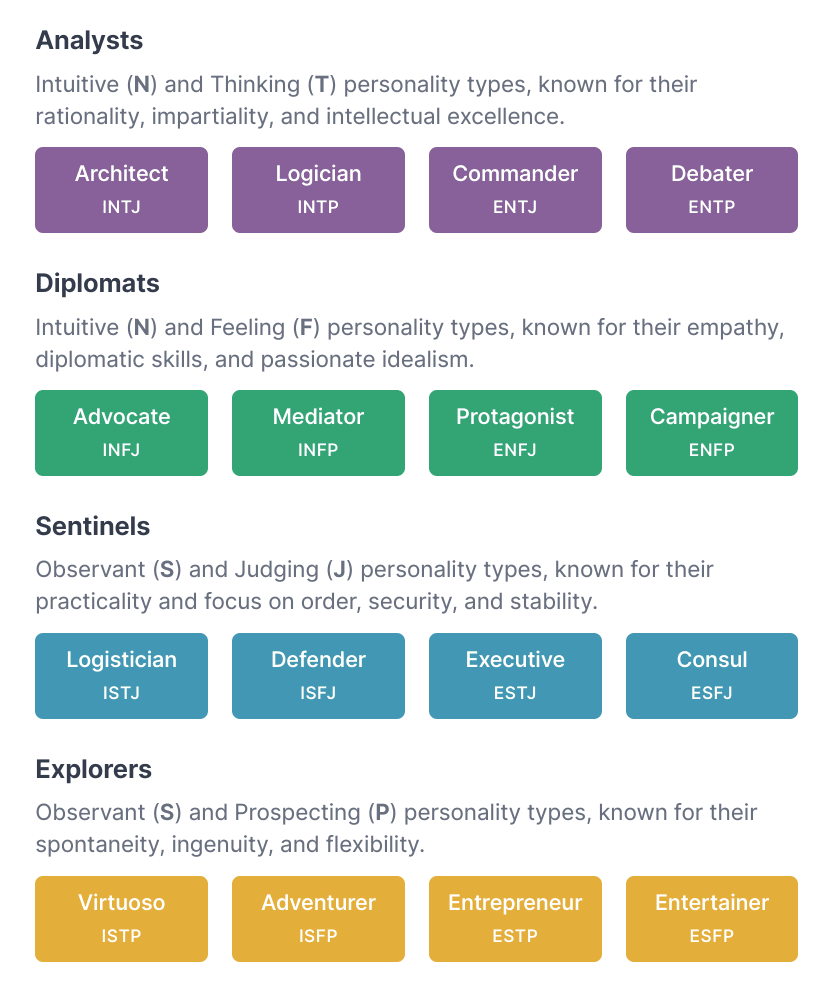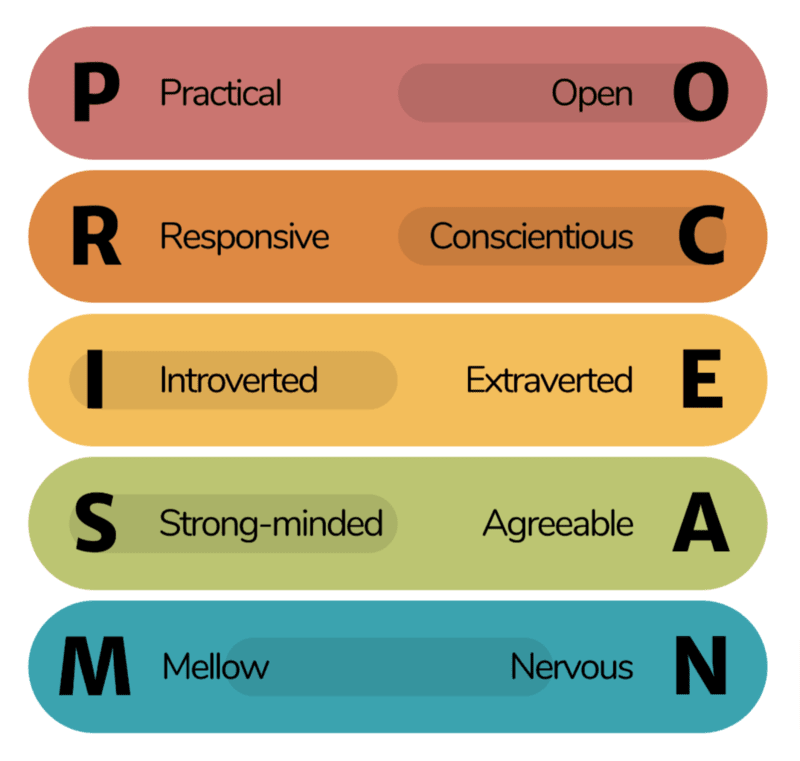TB871: Working with individual differences (MBTI & OCEAN)
Note: this is a post reflecting on one of the modules of my MSc in Systems Thinking in Practice. You can see all of the related posts in this category.
I’m moving into the Block 4 People Stream for this module, with the focus on working with individual differences. Systems Thinking involves, at the very least, defining a boundary, thinking holistically, and considering multiple perspectives, and so this part of the module is dealing with the latter.
When making strategy, rather than sitting individually in a darkened room with a wet towel over our head thinking deeply, we need to work together. That means considering other people’s preferences. I confess right off the bat that I’m not great at doing this, so I’m looking forward to getting into it.
The ‘headline issues’ for this part of the module (The Open University, 2020) are:
- What patterns are there in my own personality and personal style and how might they affect my practices around making strategy?
- What might be the impact of others’ individual variations of personality and personal style when applying systems tools for thinking strategically about situations?
- What could I do to support individuals involved in making strategy, to take account of individual differences?
Thinking about personality is fascinating to me, mainly due to reflecting on my own and how I feel like it’s changed over the years. Other people believe that personality is something that is relatively fixed, while others think it’s more determined by one’s environment, especially when growing up. This is usually referred to as the ‘nature vs nurture’ debate.
16 Personalities
Last year, while we were out for coffee and cake, one of our two teenagers asked about something related to personality. One thing led to another, and we ended up doing the 16 Personalities test. This is based on the Myers-Briggs Type Indicator which, I have to say, I’ve always been skeptical about.

The data with Myers-Briggs is entirely self-reported, which means that it’s all about how you see yourself, rather than being corroborated with how others see you. It’s unsurprising, therefore, that I think that my ‘personality type’ (INTJ) sounds a lot like me:
People with the INTJ personality type (Architects) are intellectually curious individuals with a deep-seated thirst for knowledge. INTJs tend to value creative ingenuity, straightforward rationality, and self-improvement. They consistently work toward enhancing intellectual abilities and are often driven by an intense desire to master any and every topic that piques their interest.
That being said, the results of the rest of my family (ENTP, ESFJ, and ISFJ) did seem to reflect how I would see them, and they certainly agreed with the description of me as an INTJ. I suppose it’s a bit like learning styles, there’s something in the idea that people learn in different ways, and it’s worth accommodating preferences, but it’s unlikely to be helpful in the long term to put people in a single box.
OCEAN ‘big five’ personality traits
Another approach to defining personality is the OCEAN test which is based on degrees of:
- Openness
- Conscientiousness
- Extraversion
- Agreeableness
- Neuroticism
I did the PRISM-OCEAN free online test, with PRISM standing for the other end of the spectrum:
- Practical
- Responsive
- Introverted
- Strong-minded
- Mellow

My result was OCISZ which apparently means that I’m:
- Open (curious, creative)
- Conscientious (organised, disciplined)
- Introverted (low key, reserved)
- Strong-minded (competitive, skeptical)
- Moderate (mellow, nervous)
The module materials link to this website which has a battery of various personality tests. I think this kind of thing is best done in a team situation. I think we’ll get on to the Belbin Team Roles test later, which I found pretty enlightening when I did it with the rest of the Jisc infoNet team 13 years ago. I’ve also done work around management style in ‘normal’ and ‘stressful’ situations with the senior management team when I was over in Australia with Moodle. That was also interesting, although mainly in terms of understanding my colleagues rather than myself.
Conclusion
At the end of the day, I think personality tests describe a construct based on data that you and/or other people enter into some kind of model. As a result, the model may be more or less valid. In addition, the context surrounding the data entry matters: am I doing this test on a day when I have high self-esteem, when I’ve just received fantastic feedback or validation? Has someone else entered data knowing that I will be able to identify what they have entered?
Either way, finding ways to know what’s going on inside other people’s heads is valuable. It’s not just the content of our ideas that is useful, but how we came by them, and the assumptions we’ve made along the way.
References
- The Open University (2020) ‘Introduction’, TB871 Block 4 People stream [Online]. Available at https://learn2.open.ac.uk/mod/oucontent/view.php?id=2261494 (Accessed 23 July 2024).
